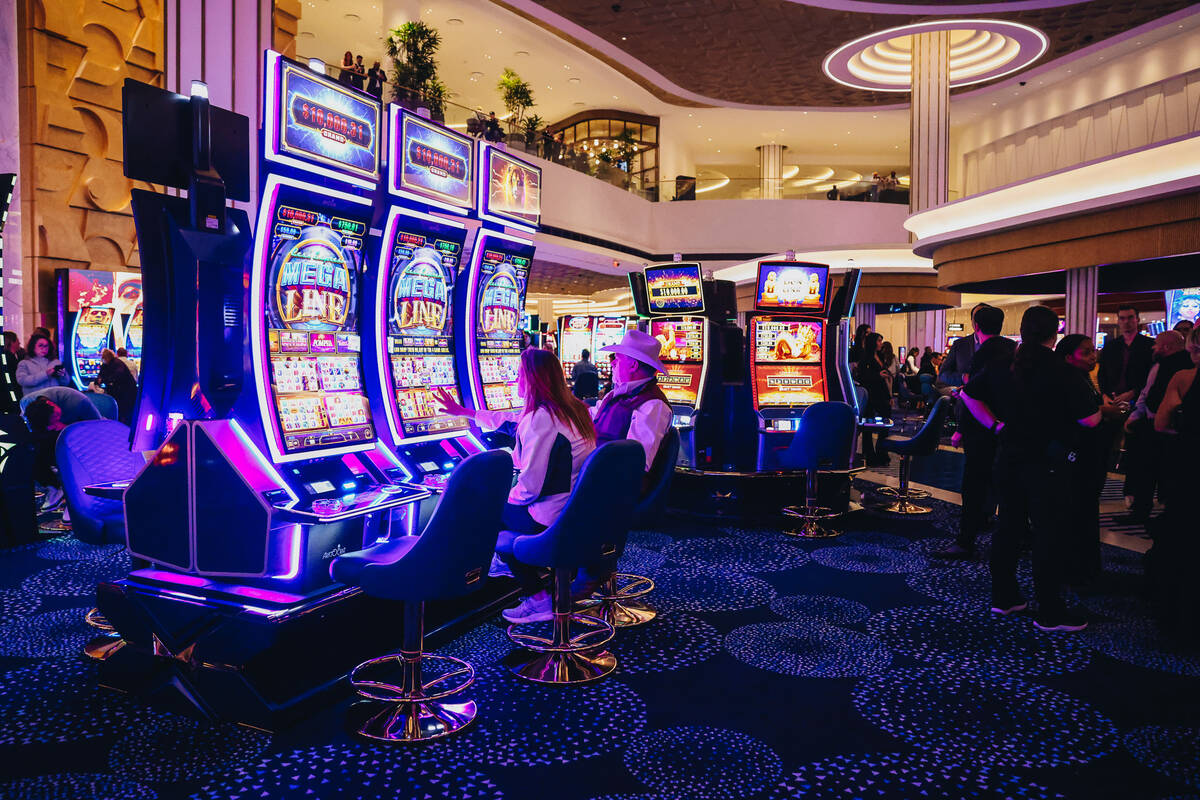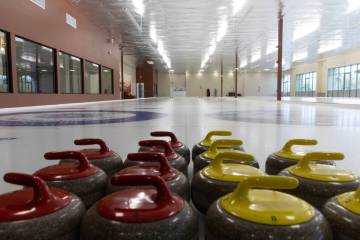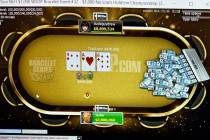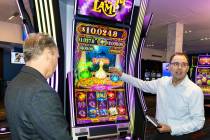Is a change in slot-machine jackpot thresholds really coming?
Color me skeptical, but I’ll believe the recent news about the Internal Revenue Service and U.S. Treasury acting to increase the threshold on reportable slot machine jackpots when I see it.
Last week, there was a report that the Internal Revenue Service Advisory Council recommended to IRS Commissioner Danny Werfel that the current amount required to trigger preparation of a W2G form of winnings above $1,200 would be changed to $5,800.
For casinos and players, that would be excellent news.
The current $1,200 threshold was established in 1977. Over time, the effects of inflation have set in and there are more and more jackpots in excess of $1,200 scored by players.
Whenever a jackpot higher than that amount occurs, everything comes to a grinding halt in the casino.
The slot machine locks up, lights flash and a casino employee must review the winning player’s identification before the jackpot can be hand-paid to the player. The trouble is there never seems to be a slot machine attendant around when you need one.
It’s an annoyance to the player, who likely wants to keep the hot streak going and continue playing. It’s a setback for the casino that wants the player to keep playing.
Issuing W2Gs
But rules are rules. The IRS wants its share of the jackpot a player wins and, to assure that, requires casinos to issue a W2G, a special tax form that also informs the IRS of gambling wins that must be included when calculating annual income at tax time.
Werfel heard testimony about changing the threshold Nov. 9 in a meeting of the advisory council.
In the meeting, Sam Cohen, government affairs and legal officer for the Santa Ynez Band of Chumash Indians, explained why the existing regulation is burdensome.
“Failure to index this reporting threshold has placed an unnecessary compliance burden on the player who’s the taxpayer, increased administrative costs for tribal and commercial casinos, and creates paperwork backlogs and operational burdens for the IRS,” he said.
“When accounting for inflation, a comparable jackpot reporting threshold today is estimated to be approximately $5,800,” he said. “The IRSAC recommends raising the reporting threshold and subsequently increasing it based on inflation and cost-of-living adjustments each year.”
Cohen suggested as an alternative, the IRS should consider incrementally increasing the threshold over a period of three to five years or until a time that the threshold meets an inflation-adjusted amount equal to the threshold established in 1977.
He suggested adding inflation indexing so that the threshold issue would never return and noted that because the rule was set by regulatory action that the change could also be made by regulators.
“Rules in the reporting threshold to reflect inflation will streamline and enhance the quality of information collected and enable the IRS to focus its enforcement resources on those taxpayers most likely to have year-end net slot winnings,” he said.
While the Advisory Council’s recommendation to raise the threshold is a good one that would benefit many people, it may literally take an act of Congress to accomplish that if the IRS fails to act.
Titus legislation
Fighting the good fight to legislate change has been Rep. Dina Titus, D-Nev., who has been fighting the IRS threshold battle for years.
Looking through the Las Vegas Review-Journal archive of stories, I’ve written about Titus’ efforts to make threshold changes four times in the last four years.
In 2022, she teamed with four congressmen, including two colleagues from Nevada, and even came up with a clever name for the legislation: the Shifting Limits on Thresholds (SLOT) Act. Reps. Steven Horsford, D-Nev.; Mark Amodei, R-Nev.; Guy Reschenthaler, R-Pa.; and Anthony Brown, D-Md.; co-sponsored the bill.
Having bipartisan legislative support is often a good recipe for success and Titus and Reschenthaler have been leading the charge as representatives from states that either have had slot machines for decades or are relatively new to the industry.
“This (the current threshold) creates an unnecessary burden on the gaming industry, an economic driver for Southern Nevada and other communities nationwide where slot machines exist,” Titus said when first introducing the legislation. “While I believe appropriate taxes should be collected on winnings, raising the threshold would reduce paperwork and ensure this is accomplished more efficiently.
After all these years, the threshold change may finally be on the horizon. If and when that happens, you can bet local casinos will be celebrating.
But I’m not ready to celebrate just yet.
Contact Richard N. Velotta at rvelotta@reviewjournal.com or 702-477-3893. Follow @RickVelotta on X.























